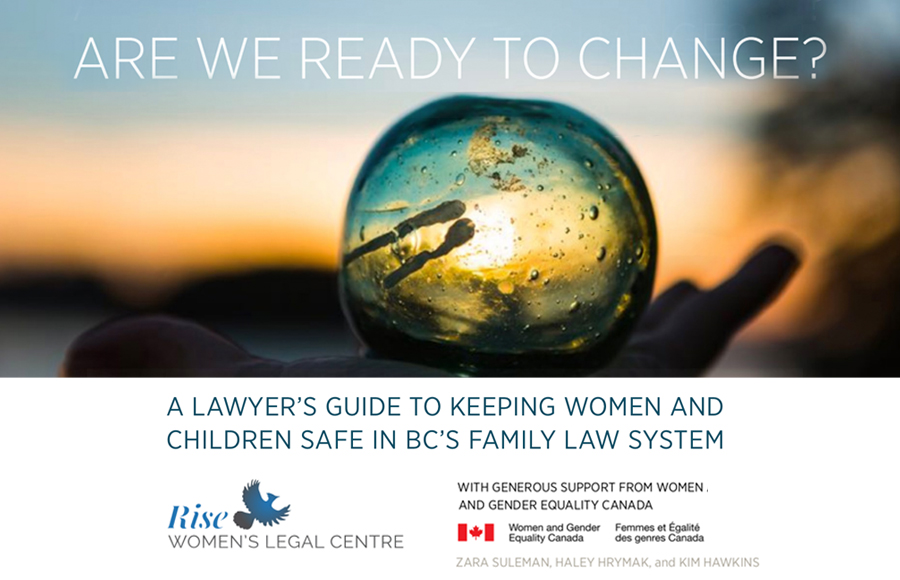
I had the great privilege to work on a report for Rise Women’s Legal Centre with my co-authors Haley Hrymak and Kim Hawkins. The report comes on the heels of Rise’s important research and report “Why Can’t Everyone Just Get Along?”.
The resounding message from survivors of gender-based violence is that the family law system is not listening to them – their fears, their needs, their risks, their experiences. These reports, like many that have come before them, echo the gaps in services, responses, and resources for survivors of violence in the legal system.
Survivors are telling us what they need – now we need to listen, act, and respond!
“We have to be alert as lawyers and members of the legal system that there are valid reasons survivors of violence may not disclose the abuse or violence they have experienced. Women’s experience of the legal system is fraught with mistrust for many reasons. The failure of many individuals within the legal system to believe women facing violence is reflected in the significant under-reporting of violence and limited disclosure of family violence. Women fear not being believed when they disclose violence because they have not been believed. Women fear not being listened to when they disclose violence because they have not been listened to. Throughout this project we found that women have a valid basis for these fears.”
“We need an ideological shift in the legal system that is informed by the overwhelming research on intimate partner violence, which this project has yet again captured.
One of the most significant barriers for the family law system is the recognition and acceptance that women and children continue to be disproportionately impacted by family violence and more specifically by intimate partner violence. The family law system continues to operate as if this is a rare and limited occurrence, a private act with no broader societal dynamics and institutions that support and permit the violence and control.
Ultimately, this project calls on lawyers and the justice system to not only commit to the positive obligation to screen and assess for family violence but also to ensure that once family violence has been disclosed, the system provides a meaningful and protective response.
This project asks lawyers and the justice system to contemplate and consider best practices and practice directives that will support women’s and children’s safety and security while they navigate their legal rights and entitlements in family court. If women negotiate settlements or surrender their rightful legal entitlements due to fear of ongoing abuse against them or their children, then the system has failed to provide access to justice.
Survivors of family violence in this project are seeking access to justice. They have given voice to their experience and their truths — truths that are already reflected in academic research, case law, and statistics. Women around BC have told us that they are unsafe, fearful, and do not believe the courts or their lawyers will hear them, let alone believe them. Many women do not have faith in the administration of justice.
Now it is up to us — are we ready?”

